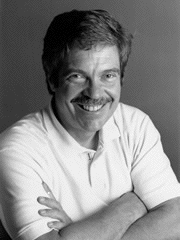

|
My own personal thoughts about what was accomplished [with Smalltalk] are completely intertwined with what our entire group was able to do in a few years at PARC. I would give us credit for a very high level combination of "computer science" and "software engineering" and "human centered design" and "commingled software and hardware", etc. The accomplishment was the group's accomplishment. And this whole (to me at least) was a lot more interesting than just a language idea.When Kay spoke at the 2004 OOPSLA Educators' Symposium as part of his Turing Award festivities, he frequently acknowledged the contributions of his team, in particular Dan Ingalls, and the influence that so many other people had on his team's work. Kay must have particularly appreciated receiving the Charles Stark Draper Prize together with Butler Lampson, Robert Taylor, and Charles Thacker, who helped create the conditions in which his team thrived. In academia, we talk a lot about teamwork, but we tend to isolate individual performance for recognition. I like Kay's analogy to the rings received by teams that win sports championships. In those venues, the winners are unmistakably teams, even when a Michael Jordan or a Tom Brady stands out. That's how academic research tends to work, too. Perhaps we should make that clear more often in the awards we give. -----I hasten to redirect personal praise to the group accomplishment whenever it happens.
I think this is also true for the larger ARPA-PARC community, and why it was able to accomplish so much at so many levels.
The "awards to individuals" structure beloved of other fields and of journalists completely misses the nature of this process. Any recognition should be like "World Series" rings -- everybody gets one, and that's it.